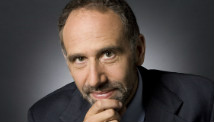NEW ORLEANS (AP) — Louisville safety Calvin Pryor predicted the Cardinals would "shock the world" against Florida in the Sugar Bowl.
Brave words that he and his teammates backed up from start to finish.
Terell Floyd returned an interception 38 yards for a touchdown on the first play, dual-threat quarterback Teddy Bridgewater directed a handful of scoring drives and No. 22 Louisville stunned the fourth-ranked Gators 33-23 in the Sugar Bowl on Wednesday night.
By the end, the chant, "Charlie, Charlie!" — for third-year Louisville coach Charlie Strong, the former defensive coordinator for the Gators — echoed from sections of the Superdome occupied by red-clad Cardinals fans.
"They kind of thought we were going to come in and lay down and give them the game," Floyd said. "But Coach Strong always preaches that we're better than any team in the nation if we come out and play hard. Coach Strong believed in us and our coaching staff believed in us and we came in and believed in ourselves
Shaking off an early hit that flattened him and knocked off his helmet, Bridgewater was 20 of 32 passing for 266 yards and two touchdowns against the heavily favored Gators. Among his throws was a pinpoint, 15-yard timing toss that DeVante Parker acrobatically grabbed as he touched one foot down in the corner of the end zone.
His other scoring strike went to Damian Copeland from 19 yards one play after a surprise onside kick by the Gators had backfired badly. Jeremy Wright had short touchdown run which gave the two-touchdown underdogs from the Big East a 14-0 lead from which the Gators never recovered.
Florida never trailed by more than 10 points this season, and the Southeastern Conference power had lost only once going into this game. The defeat dropped SEC teams to 3-3 this bowl season, with Alabama, Texas A&M and Mississippi still left to play.
Louisville and Florida each finished at 11-2.
Gators quarterback Jeff Driskel, who had thrown only three interceptions all season, turned the ball over three times on two interceptions — both tipped passes — and a fumble. He finished 16 of 29 for 175 yards.
"I look at this performance tonight, and I sometimes wonder, 'Why didn't we do this the whole season,'" Strong said. "We said this at the beginning: We just take care of our job and do what we're supposed to do, don't worry about who we're playing."
Down 33-10 midway through the fourth period, Florida tried to rally. Andre Debose scored on a 100-yard kickoff return and Driskel threw a TD pass to tight end Kent Taylor with 2:13 left. But when Louisville defenders piled on Driskel to thwart the 2-point try, the game was essentially over.
Florida didn't score until Caleb Sturgis's 33-yard field goal early in the second quarter.
The Gators finally got in the end zone with a trick play in the closing seconds of the half. They changed personnel as if to kick a field goal on fourth-and-goal from the 1, but lined up in a bizarre combination of swinging-gate and shotgun formations and handed off to Matt Jones.
Jones met only minimal resistance as he crashed into the end zone to cap an 11-play, 74-yard drive that included four straight completions and four straight runs by Driskel.
The Gators tried to keep the momentum with a surprise onside kick to open the third quarter, but not only did Louisville recover, Florida's Chris Johnson was called for a personal foul and ejected for jabbing at Louisville's Zed Evans. That gave Louisville the ball on the Florida 19, from where Bridgewater needed one play to find Copeland for his score.
On the following kickoff, Evans cut down kick returner Loucheiz Purifoy with a vicious low, high-speed hit that shook Purifoy up. Soon after, Driskel was sacked hard from behind and stripped by Pryor.
Louisville's Lorenzo Mauldin recovered on the Florida 4, but the Gators' defense drove the Cardinals backward and forced a missed field goal, but that was one of few morale victories for the frustrated Gators.
After Louisville native Muhammad Ali was on the field for the coin toss, the Cardinals quickly stung the Gators. Floyd, one of nearly three dozen Louisville players from the state of Florida, made the play.
Driskel was looking for seldom-targeted Debose, who'd had only two catches all season. The throw was a bit behind Debose and the receiver tipped it, making for an easy catch and score for Floyd only 15 seconds into the game.
"That play kind of set the tone," Floyd said. "It kind of gave us momentum and we kept it."
Oddly, Louisville had only 10 defenders on the field until only moments before the snap, when safety Jermaine Reve darted out from the sideline and immediately found a Florida receiver to cover.
When Louisville's offense got the ball later in the quarter, the Florida defense, ranked among the best in the nation this season, sought to intimidate the Cardinals with one heavy hit after another.
One blow by Jon Bostic knocked Bridgewater's helmet off moments after he'd floated an incomplete pass down the right sideline. Bostic was called for a personal foul, however, which seemed to get the Cardinals opening drive rolling. Later, Wright lost his helmet during a 3-yard gain and took another heavy hit before he went down.
Louisville kept coming, though.
B.J. Butler turned a short catch into a 23-yard gain down to the Florida 1. Then Wright punched it in to give the Cardinals an early two-TD lead over a team that finished third in the BCS standings, one spot too low to play for a national title in Miami.
Louisville won the Big East berth to this game. They beat Rutgers in late November to virtually lock up the conference title, sealing that win on a late interception by Floyd.

